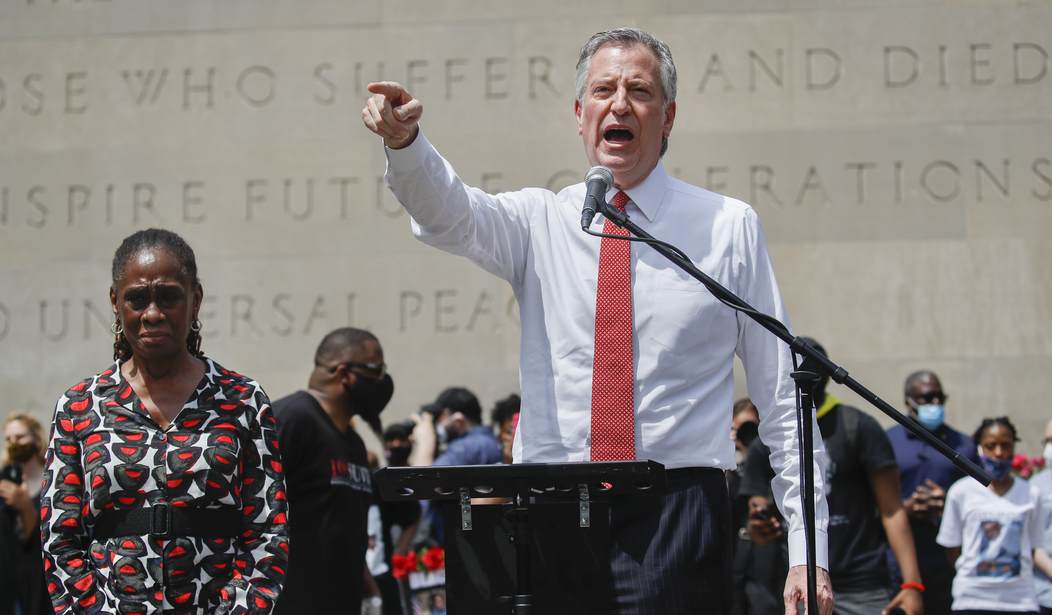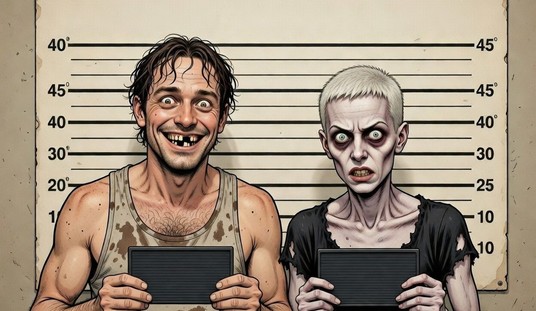Shortly after Manhattan District Attorney Cyrus R. Vance Jr. said he would not prosecute protesters for unlawful assembly and disorderly conduct, the New York Police Department (NYPD) pulled officers away from his office and redeployed them to help with crowd control. While Vance and other district attorneys have gone soft on protesters, they are aggressively prosecuting police accused of assaulting protesters.
Police also pulled away from the four other New York City district attorneys’ offices shortly after four of them made similar announcements, The New York Times reported. Police Commissioner Dermot F. Shea insisted that the timing was coincidental, but the event highlighted the prosecutors’ anti-police activism.
“There are no more law-and-order district attorneys,” Joseph L. Giacalone, a retired N.Y.P.D. sergeant and professor at John Jay College of Criminal Justice, told The Times. “The pendulum has swung so far left.”
While The Times‘ article emphasized the district attorneys’ decisions not to prosecute protesters, it downplayed their activism against the police. Buried far down in the article comes this admission:
Not only have the district attorneys declined to prosecute protesters charged with unlawful assembly, disorderly conduct and curfew violations, but they have been aggressively going after police accused of assaulting protesters. About 40 officers are under investigation, officials have said.
The Times did acknowledge that “demonstrations turned violent as police officers and protesters clashed in the streets. Images of burning police vehicles and looting led the mayor to impose a curfew.” Yet the author was quick to add, “But videos of officers using excessive force on demonstrators also appeared on social media and on the evening news, and after the curfew was imposed, officers were filmed using batons on peaceful demonstrators who appeared to have done little more than march past the deadline.”
The Violence Against This Civil War Monument Captures Just How Badly the George Floyd Riots Have Gone Wrong
Marching past the deadline is also known as “unlawful assembly.” Due to the damage and destruction of the riots, Mayor Bill de Blasio imposed a curfew, one of his tools to bring order amid such destruction. Violating curfew in order to protest is a minor offense, but it is an offense nonetheless. When district attorneys choose not to prosecute that law, they are arguably violating their oaths of office.
In many cases, the law is too harsh. In those cases, local legislatures should change the law. New Yorkers can organize and vote to change these laws. Instead, these prosecutors became activists, choosing which laws they would enforce and which they would not.
The district attorneys chose not to enforce a legal curfew, declared by the mayor, but they aggressively enforce alleged police abuses.
Vance explained that he would not enforce the law against protesters, arguing that “the prosecution of protestors charged with these low-level offenses undermines critical bonds between law enforcement and the communities we serve.”
“Days after the killing of George Floyd, our nation and our city are at a crossroads in our continuing endeavor to confront racism and systemic injustice wherever it exists. Our office has a moral imperative to enact public policies which assure all New Yorkers that in our justice system and our society, black lives matter and police violence is a crime. We commend the thousands of our fellow New Yorkers who have peacefully assembled to demand these achievable aims, and our door is open to any New Yorker who wishes to be heard,” Vance added.
Black lives do indeed matter in the New York justice system, and police violence is indeed a crime. But Unlawful Assembly and Disorderly Conduct are also crimes. Interestingly, the Manhattan District Attorney’s Office previously offered individuals charged with these offenses an Adjournment in Contemplation of Dismissal, meaning their cases would be dismissed within six months. Even this lenient stance was not enough for Vance, who said he would not prosecute the arrests at all.
While some of the arrests did involve nonviolent protesters, “Disorderly Conduct” also includes “fighting or … violent, tumultuous or threatening behavior.” In other words, not all “protesters” who were arrested for Disorderly Conduct were truly “peaceful.”
Police should not abuse their authority, and prosecutors should indeed carry out cases of alleged police abuse. But when government prosecutors decide to become activists and decide to aggressively prosecute police while letting violent “protesters” off the hook, they are abusing their authority and undermining the rule of law. Society works best when the laws are fairly and evenly applied, so if there are unjust laws, people can organize to change them.
Yet these prosecutors have picked sides against the police — the very agency tasked with protecting law and order. The NYPD insists that they did not redirect officers away from district attorneys’ offices in response to this politicization. Police should not remove their protection merely because prosecutors are proving derelict in their duty, but the prosecutors should take this opportunity to change their approach.
Tyler O’Neil is the author of Making Hate Pay: The Corruption of the Southern Poverty Law Center. Follow him on Twitter at @Tyler2ONeil.









Join the conversation as a VIP Member